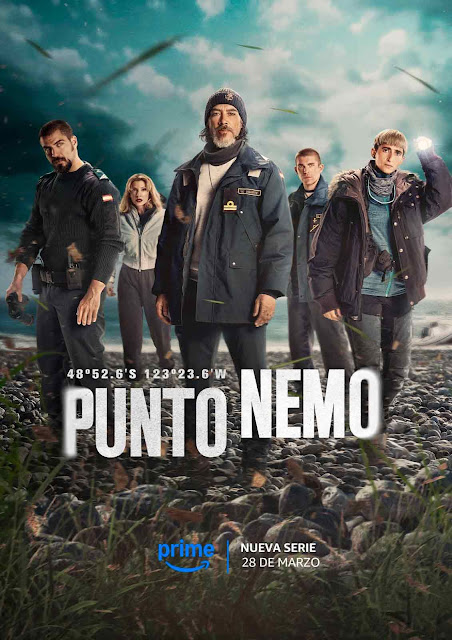Punto Nemo, available on Amazon Prime, tries to be a suspenseful, thought-provoking series about environmental urgency. It wants to be deep. But instead of pulling viewers in, it leaves them stranded in shallow waters.
The First Question: Is It Really That Bad?
At first, I wasn’t sure. The opening episode was messy, yes — confusing timelines, a poorly explained plot, and a tone that couldn’t quite decide if it was thriller, sci-fi, or something else entirely.
Still, something about it made me keep watching. It wasn’t good, but it wasn’t unwatchable. So what exactly was wrong?
From Confused to Completely Absurd
As the episodes progressed, the cracks widened. Once they arrive at a supposedly deserted island, you might recall Lost, but get ready to be disappointed.
Storylines started to collapse under their own weight. Characters made strange decisions with no explanation. The plot, already unstable, spiraled into the realm of the ridiculous.
By the final episodes, it became impossible to take the show seriously. What could have been an important message about ocean conservation got lost in absurdity — so absurd, in fact, that it almost felt like satire. And that’s a problem when your goal is to sound the alarm about real-world issues.
The Message That Never Reached the Shore
The show wants to warn us: Protect the oceans. But the warning is so wrapped up in nonsense and melodrama that it never lands. Instead of being moved, I was baffled. Instead of caring more about the ocean, I was just wondering who approved the final script.
A serious message demands a serious story — or at least a coherent one. Punto Nemo gives us neither.
Performances Adrift
To be fair, the actors do try. Some performances are actually quite decent, and you can find some familiar faces, such as Alba Flores (Money Heist). But they’re working with weak material and chaotic direction. Even when the cast delivers emotion or intensity, it gets buried in a plot that refuses to make sense.
There were glimpses of potential, brief moments that hinted at a better show underneath it all. But sadly, those moments were few and far between — and never followed through.
Each Episode, a New Letdown
By the time I reached the final episode, I realized the answer to my original question: What’s really wrong with Punto Nemo? The answer is — nearly everything.
From inconsistent pacing and underdeveloped characters to an incoherent message and a wildly fluctuating tone, the show just never finds its footing. Every episode feels like a missed opportunity.
Final Verdict
Punto Nemo could have been a meaningful, suspenseful, and even beautiful series about humanity’s relationship with the ocean. Instead, it drifts aimlessly — trying to be profound, but ending up lost in its own mess.
If you’re curious enough to dive in, prepare to be disappointed. This ship doesn’t sink — it just never sails.

Comments
Post a Comment